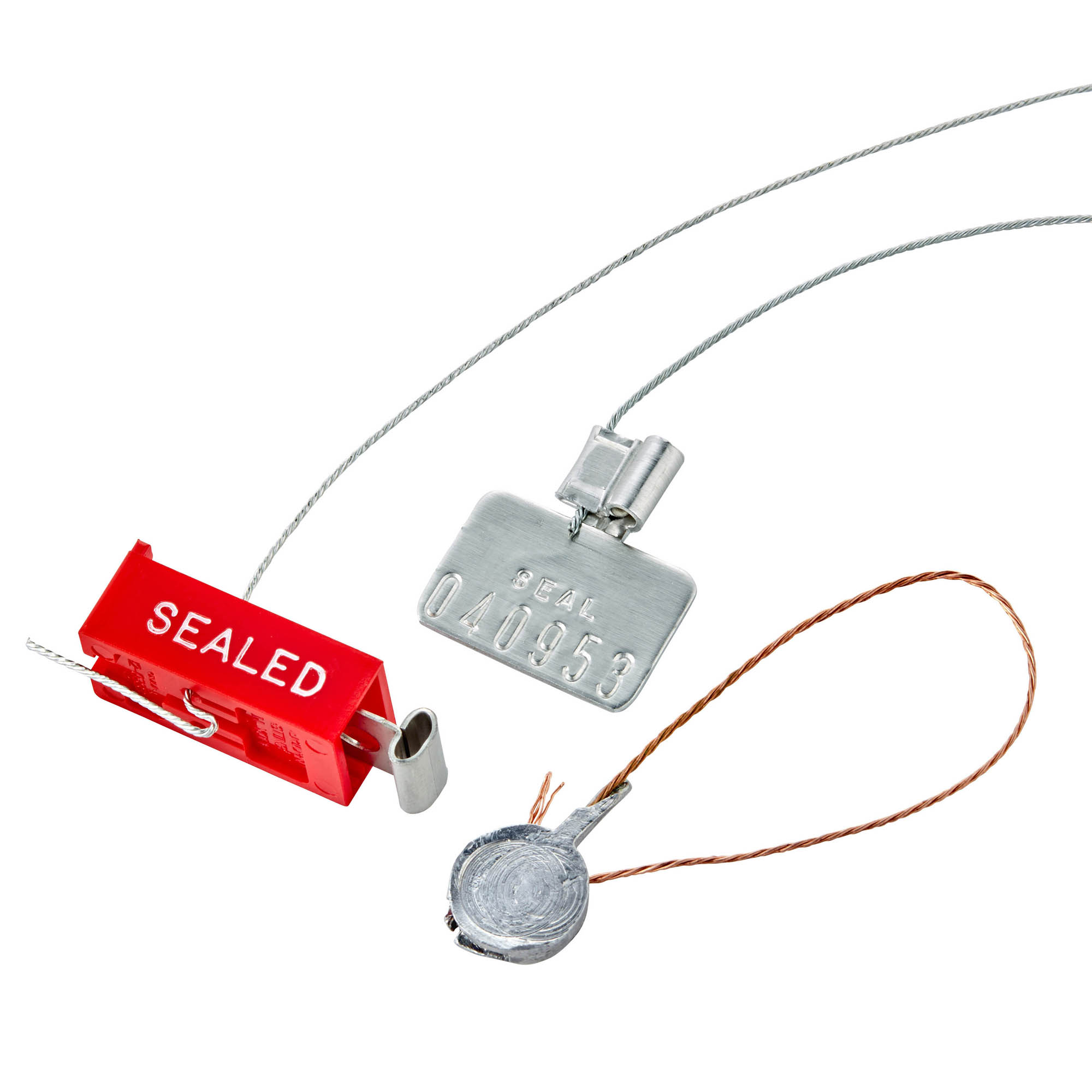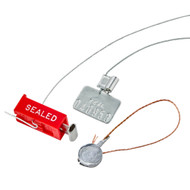WHY REFILLABLE PESTICIDE CONTAINERS NEED WIRE SECURITY SEALS
Posted by AC&M
Refillable containers for pesticides are regulated by the EPA in the US. (refer to EPA “40 CFR Part 165 Subpart D”). Other countries have similar regulations that address the integrity of pesticide containers.
The EPA regulation states that openings (other than vents) on a washed and refilled pesticide container must have a one-way valve or a tamper evident device. Without one of those two things, costly and complex procedures are required to use the container again.Since the vast majority of containers do not have one-way valves, security seals are the optimal choice.
Tamper Evident Wire Seals are the type most often chosen for sealing containers of pesticides. This is partly because they fit almost any closure. But another reason for choosing wire seals is history and habit. For a long time, they were one of only a few options -- before more modern seals were developed.
AC&M makes a wide range of wire seals and has been manufacturing them for over 100 years at its factory and headquarters in New York.
Among the many wires, seal options are types made of lead, aluminum, and plastic. The traditional lead and aluminum types like Models LWS and AF1000 (see link at our home page) require a press to close.

Using lead and aluminum wire seals with a press allows the user to install dies with a symbol or marks unique to that press. The press can be assigned to a specific user, which tells the person inspecting the seal who applied it.
The newer model PSW-97 Plastic and Wire Seal requires no tools to close. It can be closed by hand and seals with a stainless lock that provides superior tamper evident properties and highly readable markings. Serial numbers, letters, and colors can be used to identify things like the point of use, content, owner, the person or group that sealed the container, and more.
AC&M wire seals are available with wires of galvanized steel, stainless steel or copper. They come in custom or standard lengths, pre-cut or attached. The wire can also be purchased on bulk rolls and cut to length at the point of installation.
Wire seals are not the only option for sealing pesticide containers. If the closure will fit larger seals, there are plastic padlock type seals with steel hasps and many types of plastic pull up seals which can be barcoded or custom marked in various ways. They also can be purchased in different colors for identification or control purposes. They can even have a writing space to add a date, user identity, or other notes. See our web page (www.seals.com) to see the many options.
Whatever your needs, if you are using and refilling pesticide containers AC&M has a seal that will work for you. We offer the highest quality and fastest delivery. We control the manufacturing start to finish at our US factory and warehouse, but can deliver quickly almost anywhere in the world. We have thousands of trusted users with over a century of service to all industries.
If you have questions about our seals or want information about using seals to seal bulk pesticide containers, contact us. AC&M serves many major commercial and agricultural chemical companies and we are glad to assist with any information, samples, or price information you need.
An experienced seal applications expert is available any time during business hours. Contact them at our main office and factory: info@seals.com or call 1-800-342-0333 in the US or 516-349-7010 from anywhere.
Or see our website www.seals.com for sales and service locations outside the US.

